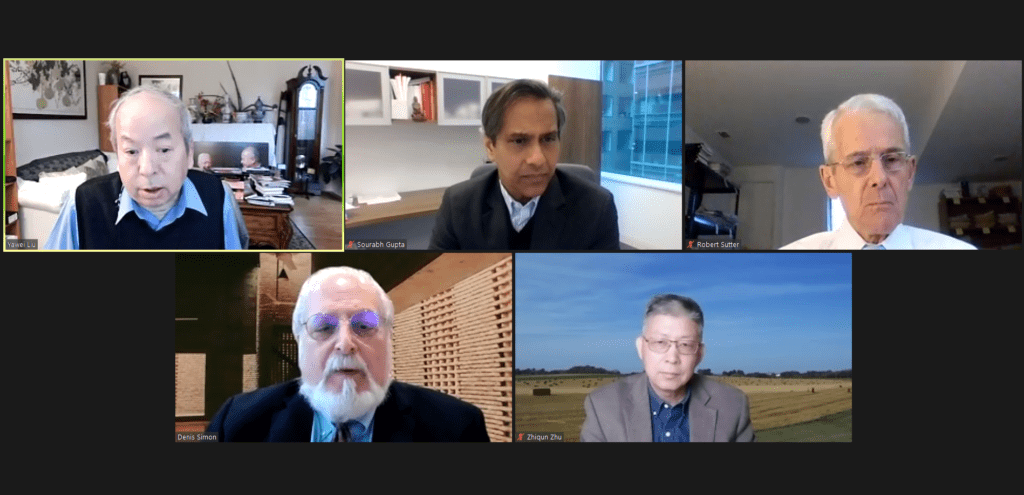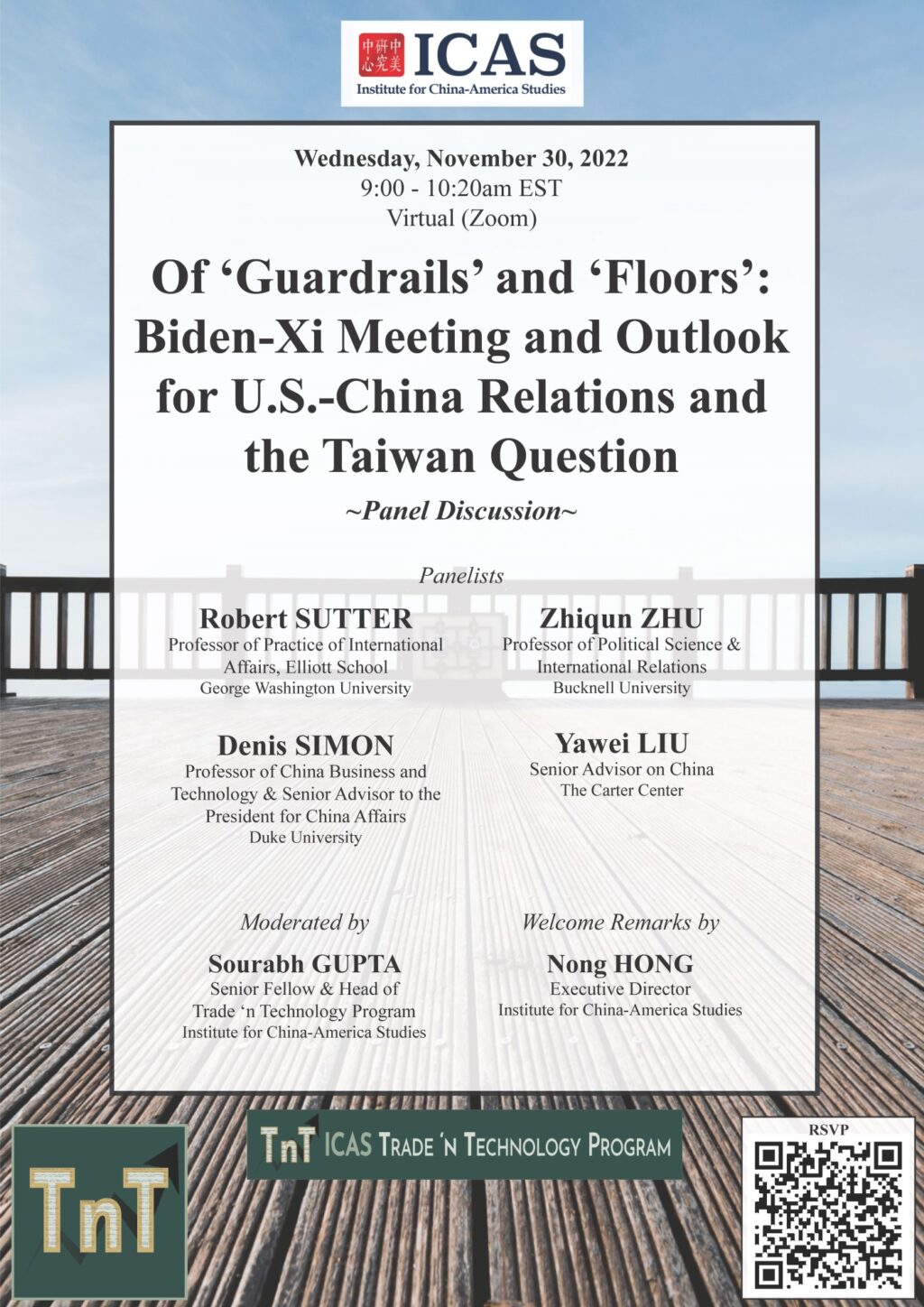

POST-EVENT SUMMARY
On November 30, 2022, the Institute for China-America Studies (ICAS) hosted a virtual public event to discuss the state of U.S.-China relations following the first in-person meeting of President Joe Biden and President Xi Jinping on the sidelines of the G20 Leaders Summit in Bali, Indonesia. The event was titled “Of ‘Guardrails’ and ‘Floors’: Biden-Xi Meeting and Outlook for U.S.-China Relations and the Taiwan Question.” The event was moderated by Mr. Sourabh Gupta, Senior Fellow and Head of ICAS’ Trade n’ Technology Program, and featured four speakers: Dr. Yawei Liu, Senior Advisor on China at The Carter Center, Dr. Robert Sutter, Professor of Practice of International Relations at George Washington University, Dr. Zhiqun Zhu, Professor of Political Science & International Relations at Bucknell University, and Dr. Denis Simon, Professor of China Business and Technology & Senior Advisor to the President for China Affairs at Duke University.
The panelists were in broad agreement that the inauguration of a new phase of strategic communications at the Biden-Xi meeting in Bali was a welcome and stabilizing development. In trying to address the multiplicity of difficult issues plaguing U.S.-China relations, it was acknowledged that there is no substitute for face-to-face communications and on-going dialogue to help moderate the potential for miscalculation and misperception. The hope is that the Bali meeting will set a positive direction and kick off a process that cements a “floor” under the bilateral relationship. Equally, the panelists were in broad agreement that none of the deep structural challenges that bedevil the relationship had disappeared. It is important to be clear-eyed that cut-throat competition is the central feature of U.S.-China relations. Beijing would much prefer that the two sides adopt a ‘peaceful coexistence, no conflict, no confrontation’ bottom line and sincerely adhere to it. The continuity in foreign and security policy personnel and policies at the 20th Party Congress was an expression of this preference for stability and peaceful coexistence. In Washington though, the prevailing bipartisan view is that the toughened stance on China has paid dividends. Pressure on China works; hence, the imperative going forward is to maintain that pressure and emphatically approach the bilateral relationship from a position of strength.
Overall, the immediate outlook for U.S.-China relations and the Taiwan Question is mixed. A somewhat more stable bilateral equation can be anticipated in 2023. On the other hand, the capture of the House by the Republicans and potential episodes such as the vow of incoming speaker, Kevin McCarthy, to pay a visit to Taipei could inject dangerous instability into the relationship. With a view to breaking down the barriers of mistrust and zero-sum attitudes on both sides, it was suggested that the two sides consider collaborating on a flagship project of common interest. With greying populations on both sides of the Pacific, a marquee U.S.-China project on cancer or Alzheimer’s disease-related research could provide a shot in the arm to the bilateral relationship.


